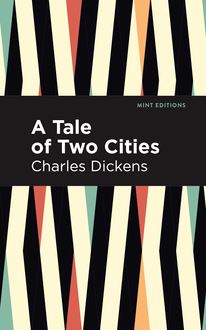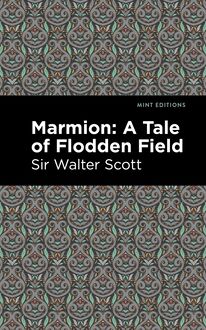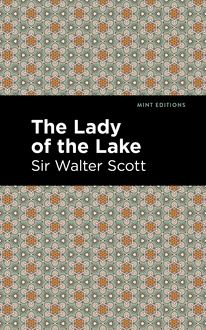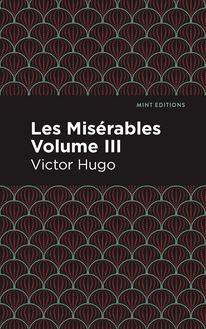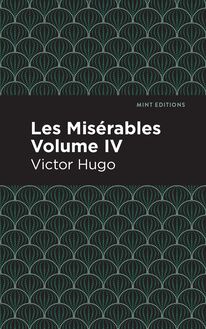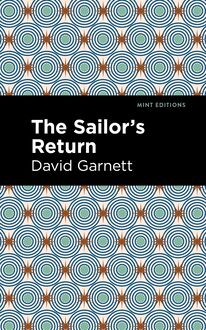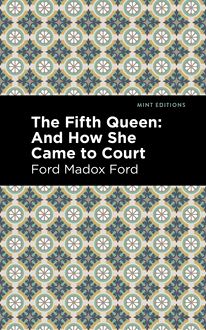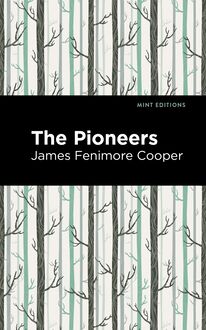-
 Univers
Univers
-
 Ebooks
Ebooks
-
 Livres audio
Livres audio
-
 Presse
Presse
-
 Podcasts
Podcasts
-
 BD
BD
-
 Documents
Documents
-
- Cours
- Révisions
- Ressources pédagogiques
- Sciences de l’éducation
- Manuels scolaires
- Langues
- Travaux de classe
- Annales de BEP
- Etudes supérieures
- Maternelle et primaire
- Fiches de lecture
- Orientation scolaire
- Méthodologie
- Corrigés de devoir
- Annales d’examens et concours
- Annales du bac
- Annales du brevet
- Rapports de stage
La lecture à portée de main
Vous pourrez modifier la taille du texte de cet ouvrage
Découvre YouScribe en t'inscrivant gratuitement
Je m'inscrisDécouvre YouScribe en t'inscrivant gratuitement
Je m'inscrisEn savoir plus
Vous pourrez modifier la taille du texte de cet ouvrage
En savoir plus

Description
Taking place just a few years after the Louisiana Purchase, The Prairie follows Ishmael and Esther Bush as they travel west from the Mississippi River with their fourteen children, Ellen Wade, a doctor, and Esther’s brother. While searching for a place to camp, the group meets Natty Bumppo, a legendary man now in his late eighties. Referred to as “the trapper” Natty helps the family settle somewhere safe. Later, as he roams through the forest, he stumbles upon Ellen, Esther Bush’s niece, in a secret rendezvous with her lover. Though Ishmael intends to marry Ellen to his oldest son, Ellen has fallen in love with Paul Hover, a wandering beehunter. Before she can explain, the three are kidnapped by the Sioux Native American tribe. Though they manage to pull off a narrow escape, the capture is only the beginning of Natty and the Bush’s problems. After their camp is raided and their horses are stolen, the Bush’s are left stranded. Always willing to help those in need, Natty guides the group to a naturally fortified hill. As they settle, one of Natty’s old acquaintances arrive with shocking news. Struggling to survive kidnappings, torture, murder, fires, and betrayal, the Bush’s and Natty fight to protect their loved ones and make the prairie their home.
With scandalous love affairs, thrilling near death experiences, and shocking betrayals, The Prairie depicts an enthralling journey of early Americans. As the last installment of James Fenimore Cooper’s esteemed series, Leatherstocking Tales, The Prairie depicts its courageous and kind protagonist, Natty Bumppo, as he experiences the final years of his life. Matching the exciting adventures previously depicted in the series, The Prairie bids farewell to Natty Bumppo paying homage to his past while indulging in the emotional journey of an aging man. With the portrayal of memorable characters and a vivid, undomesticated setting, Cooper’s novel examines how civilization changes nature, and the cruel damage humankind inflict on each other.
This edition of James Fenimore Cooper’s The Prairie features a striking new cover design and is reprinted in a readable and appealing font, encouraging modern readers to experience the emotional and vivid portrayal of the pioneers living in a young, developing nation.
Sujets
Informations
| Publié par | Mint Editions |
| Date de parution | 05 janvier 2021 |
| Nombre de lectures | 0 |
| EAN13 | 9781513274485 |
| Langue | English |
| Poids de l'ouvrage | 2 Mo |
Informations légales : prix de location à la page 0,0500€. Cette information est donnée uniquement à titre indicatif conformément à la législation en vigueur.
Extrait
The Prairie
James Fenimore Cooper
The Prairie was first published in 1827.
This edition published by Mint Editions 2021.
ISBN 9781513269481 | E ISBN 9781513274485
Published by Mint Editions®
minteditionbooks.com
Publishing Director: Jennifer Newens
Design & Production: Rachel Lopez Metzger
Typesetting: Westchester Publishing Services
C ONTENTS I II III IV V VI VII VIII IX X XI XII XIII XIV XV XVI XVII XVIII XIX XX XXI XXII XXIII XXIV XXV XXVI XXVII XXVIII XXIX XXX XXXI XXXII XXXIII XXXIV
I
I pray thee, shepherd, if that love or gold,
Can in this desert place buy entertainment,
Bring us where we may rest ourselves and feed.
— A S YOU LIKE IT
M uch was said and written, at the time, concerning the policy of adding the vast regions of Louisiana, to the already immense and but half-tenanted territories of the United States. As the warmth of controversy however subsided, and party considerations gave place to more liberal views, the wisdom of the measure began to be generally conceded. It soon became apparent to the meanest capacity, that, while nature had placed a barrier of desert to the extension of our population in the west, the measure had made us the masters of a belt of fertile country, which, in the revolutions of the day, might have become the property of a rival nation. It gave us the sole command of the great thoroughfare of the interior, and placed the countless tribes of savages, who lay along our borders, entirely within our control; it reconciled conflicting rights, and quieted national distrusts; it opened a thousand avenues to the inland trade, and to the waters of the Pacific; and, if ever time or necessity shall require a peaceful division of this vast empire, it assures us of a neighbour that will possess our language, our religion, our institutions, and it is also to be hoped, our sense of political justice.
Although the purchase was made in 1803, the spring of the succeeding year was permitted to open, before the official prudence of the Spaniard, who held the province for his European master, admitted the authority, or even of the entrance of its new proprietors. But the forms of the transfer were no sooner completed, and the new government acknowledged, than swarms of that restless people, which is ever found hovering on the skirts of American society, plunged into the thickets that fringed the right bank of the Mississippi, with the same careless hardihood, as had already sustained so many of them in their toilsome progress from the Atlantic states, to the eastern shores of the “father of rivers.”
Time was necessary to blend the numerous and affluent colonists of the lower province with their new compatriots; but the thinner and more humble population above, was almost immediately swallowed in the vortex which attended the tide of instant emigration. The inroad from the east was a new and sudden out-breaking of a people, who had endured a momentary restraint, after having been rendered nearly resistless by success. The toils and hazards of former undertakings were forgotten, as these endless and unexplored regions, with all their fancied as well as real advantages, were laid open to their enterprise. The consequences were such as might easily have been anticipated, from so tempting an offering, placed, as it was, before the eyes of a race long trained in adventure and nurtured in difficulties.
Thousands of the elders, of what were then called the New States, broke up from the enjoyment of their hard-earned indulgences, and were to be seen leading long files of descendants, born and reared in the forests of Ohio and Kentucky, deeper into the land, in quest of that which might be termed, without the aid of poetry, their natural and more congenial atmosphere. The distinguished and resolute forester who first penetrated the wilds of the latter state, was of the number. This adventurous and venerable patriarch was now seen making his last remove; placing the “endless river” between him and the multitude his own success had drawn around him, and seeking for the renewal of enjoyments which were rendered worthless in his eyes, when trammelled by the forms of human institutions.
In the pursuit of adventures such as these, men are ordinarily governed by their habits or deluded by their wishes. A few, led by the phantoms of hope, and ambitious of sudden affluence, sought the mines of the virgin territory; but by far the greater portion of the emigrants were satisfied to establish themselves along the margins of the larger water-courses, content with the rich returns that the generous, alluvial, bottoms of the rivers never fail to bestow on the most desultory industry. In this manner were communities formed with magical rapidity; and most of those who witnessed the purchase of the empty empire, have lived to see already a populous and sovereign state, parcelled from its inhabitants, and received into the bosom of the national Union, on terms of political equality.
The incidents and scenes which are connected with this legend, occurred in the earliest periods of the enterprises which have led to so great and so speedy a result.
The harvest of the first year of our possession had long been passed, and the fading foliage of a few scattered trees was already beginning to exhibit the hues and tints of autumn, when a train of wagons issued from the bed of a dry rivulet, to pursue its course across the undulating surface, of what, in the language of the country of which we write, is called a “rolling prairie.” The vehicles, loaded with household goods and implements of husbandry, the few straggling sheep and cattle that were herded in the rear, and the rugged appearance and careless mien of the sturdy men who loitered at the sides of the lingering teams, united to announce a band of emigrants seeking for the Elderado of the West. Contrary to the usual practice of the men of their caste, this party had left the fertile bottoms of the low country, and had found its way, by means only known to such adventurers, across glen and torrent, over deep morasses and arid wastes, to a point far beyond the usual limits of civilised habitations. In their front were stretched those broad plains, which extend, with so little diversity of character, to the bases of the Rocky Mountains; and many long and dreary miles in their rear, foamed the swift and turbid waters of La Platte.
The appearance of such a train, in that bleak and solitary place, was rendered the more remarkable by the fact, that the surrounding country offered so little, that was tempting to the cupidity of speculation, and, if possible, still less that was flattering to the hopes of an ordinary settler of new lands.
The meagre herbage of the prairie, promised nothing, in favour of a hard and unyielding soil, over which the wheels of the vehicles rattled as lightly as if they travelled on a beaten road; neither wagons nor beasts making any deeper impression, than to mark that bruised and withered grass, which the cattle plucked, from time to time, and as often rejected, as food too sour, for even hunger to render palatable.
Whatever might be the final destination of these adventurers, or the secret causes of their apparent security in so remote and unprotected a situation, there was no visible sign of uneasiness, uncertainty, or alarm, among them. Including both sexes, and every age, the number of the party exceeded twenty.
At some little distance in front of the whole, marched the individual, who, by his position and air, appeared to be the leader of the band. He was a tall, sun-burnt, man, past the middle age, of a dull countenance and listless manner. His frame appeared loose and flexible; but it was vast, and in reality of prodigious power. It was, only at moments, however, as some slight impediment opposed itself to his loitering progress, that his person, which, in its ordinary gait seemed so lounging and nerveless, displayed any of those energies, which lay latent in his system, like the slumbering and unwieldy, but terrible, strength of the elephant. The inferior lineaments of his countenance were coarse, extended and vacant; while the superior, or those nobler parts which are thought to affect the intellectual being, were low, receding and mean.
The dress of this individual was a mixture of the coarsest vestments of a husbandman with the leathern garments, that fashion as well as use, had in some degree rendered necessary to one engaged in his present pursuits. There was, however, a singular and wild display of prodigal and ill judged ornaments, blended with his motley attire. In place of the usual deer-skin belt, he wore around his body a tarnished silken sash of the most gaudy colours; the buck-horn haft of his knife was profusely decorated with plates of silver; the marten’s fur of his cap was of a fineness and shadowing that a queen might covet; the buttons of his rude and soiled blanket-coat were of the glittering coinage of Mexico; the stock of his rifle was of beautiful mahogany, riveted and banded with the same precious metal, and the trinkets of no less than three worthless watches dangled from different parts of his person. In addition to the pack and the rifle which were slung at his back, together with the well filled, and carefully guarded pouch and horn, he had carelessly cast a keen and bright wood-axe across his shoulder, sustaining the weight of the whole with as much apparent ease, as if he moved, unfettered in limb, and free from incumbrance.
A short distance in the rear of this man, came a group of youths very similarly attired, and bearing sufficient resemblance to each other, and to their leader, to distinguish them as the children of one family. Though the youngest of their number could not much have passed the period, that, in the nicer judgment of the law, is called the age of discretion, he had proved himself so far worthy of his progenitors as to have reared already h
-
 Univers
Univers
-
 Ebooks
Ebooks
-
 Livres audio
Livres audio
-
 Presse
Presse
-
 Podcasts
Podcasts
-
 BD
BD
-
 Documents
Documents
-
Jeunesse
-
Littérature
-
Ressources professionnelles
-
Santé et bien-être
-
Savoirs
-
Education
-
Loisirs et hobbies
-
Art, musique et cinéma
-
Actualité et débat de société
-
Jeunesse
-
Littérature
-
Ressources professionnelles
-
Santé et bien-être
-
Savoirs
-
Education
-
Loisirs et hobbies
-
Art, musique et cinéma
-
Actualité et débat de société
-
Actualités
-
Lifestyle
-
Presse jeunesse
-
Presse professionnelle
-
Pratique
-
Presse sportive
-
Presse internationale
-
Culture & Médias
-
Action et Aventures
-
Science-fiction et Fantasy
-
Société
-
Jeunesse
-
Littérature
-
Ressources professionnelles
-
Santé et bien-être
-
Savoirs
-
Education
-
Loisirs et hobbies
-
Art, musique et cinéma
-
Actualité et débat de société
- Cours
- Révisions
- Ressources pédagogiques
- Sciences de l’éducation
- Manuels scolaires
- Langues
- Travaux de classe
- Annales de BEP
- Etudes supérieures
- Maternelle et primaire
- Fiches de lecture
- Orientation scolaire
- Méthodologie
- Corrigés de devoir
- Annales d’examens et concours
- Annales du bac
- Annales du brevet
- Rapports de stage

